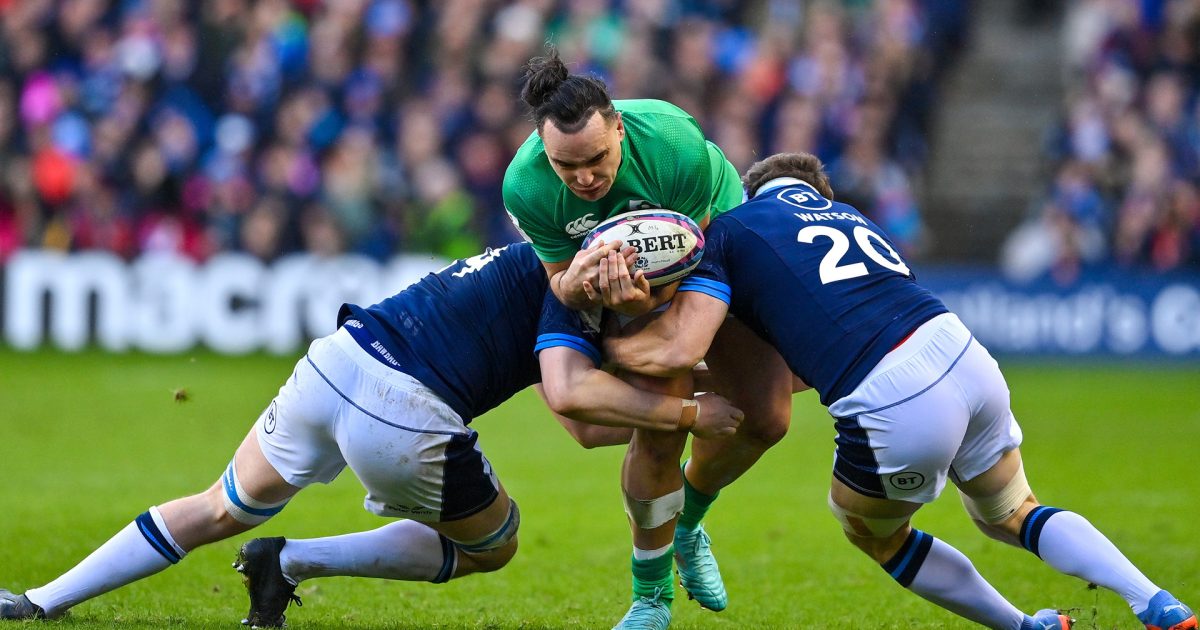World Rugby urges members to trial 'belly tackles' to reduce concussion risk

World Rugby is encouraging its member unions to trial “belly tackles” in the community game in a bid to make the sport safer.
The global governing body’s executive board has recommended, subject to World Rugby Council approval, that national unions consult over lowering the tackle height at non-elite level in a bid to reduce concussions caused by head-on-head contact between a tackler and the ball-carrier.
World Rugby’s recommendation is that the height be set below the sternum, which it also refers to as a “belly tackle”.
The World Rugby Council will not meet to consider this proposal for approval until May, but World Rugby is making this announcement to enable unions to engage in full consultation ahead of their new seasons.
The trials will be opt-in – unions do not have to take part, but almost all are understood to be seriously considering World Rugby’s recommendation.
World Rugby chief executive Alan Gilpin said his organisation was also hoping to conduct a lowered tackle height trial in the elite game and would not rule out law changes in the future that would lower tackle height at the top level.
“The clear mounting evidence is that doing nothing is simply not an option,” Gilpin said.
“Specifically in the community game, head-on-head contact is something we need to reduce. We have to view these proposals as an opportunity to grow the sport at community level in tandem with reducing player risk.”
There has been a mixed response globally to initiatives aimed at lowering tackle height.
In England, the Rugby Football Union faced widespread criticism after it announced in January plans to ban tackling above the waist from next season in the community game.
The RFU apologised for how it had communicated its proposal and has engaged in a fresh period of consultation on the issue.
A trial of lowering tackle height to the waist – above the shorts line – was commissioned in the French community game and endorsed by World Rugby in 2019 with some encouraging results.
Gilpin reported a 63 per cent reduction in head-on-head contact and a 16 per cent increase in participation levels. The study also found the change in tackle height enabled ball-carriers to achieve a greater number of offloads, improving the flow of the game.
Last year New Zealand consulted on lowering tackle height to below the sternum, while the Scottish Rugby Union began its consultation on community game tackle height last month.
Mark Harrington, World Rugby’s chief player welfare and rugby services officer, tried to allay fears that the changes would make the game only open to players with certain body types.
“That definitely is not the intention,” he said.
“Unions have flexibility to the level at which they adopt this. Our recommendation is below the sternum. We certainly wouldn’t be looking at recommending that every tackle is a chop tackle around the ankles, which admittedly for big guys is a challenge. There are some that might put it at nipple height.
“People say we’re trying to drive the game to the floor. We’re not, we’re just trying to get heads out of the same space.”
Asked to respond to the reaction to the RFU’s proposals, Gilpin said: “We understand change is challenging. People who are already in the rugby community to some extent are going to resist changes to what they know, and we get that.
“This is about educating the whole community. That consultation period is really key. You’ve got to try to take the community game with you and that’s not to say that’s easy, because there’s always going to be resistance.
“But again, the evidence is unequivocal. Whilst in the short term, there’ll be some challenges to that again, we think the evidence shows that that will make the game more attractive to more people.”
World Rugby will assist member unions with training resources, with training technique programmes mandatory before any trial begins.
Unions will also be encouraged to measure the impact of the trials, which World Rugby said will be reviewed in the second quarter of 2025.
The steps to improve safety come at a time when separate legal proceedings involving elite and community game players are under way.
World Rugby insists though that this is an initiative driven by scientific evidence, rather than a response to a legal challenge.

























I'm sure Garry Ringrose will be happy to tell everyone how much he enjoys tackling around the hips next weekend when he's not playing.
What’s next? Boxing without punching, I suppose!
I'm for all the precautions in the world for children. But when it comes to senior level rugby, at what point do we say, "we all know the risks, so long as everyone is going in eyes open, we need to let adults decide what level of risk they're okay with?"
If you don't understand at this point that rugby, and American football, and ice hockey, and even football to lesser extent present a risk, I don't know what to tell you? Personally I didn't need studies to tell me that high contact sport could be dangerous, I kind of thought it was common sense. Bang your head hard, you can injure your brain.
It's a bit like tobacco, we all know it's bad for you, yet adults should still be allowed to smoke. Not saying rugby is as bad but same concept. As long as grown adults have all the knowledge, we have to let people make the decisions they feel are best for them.
must be joking